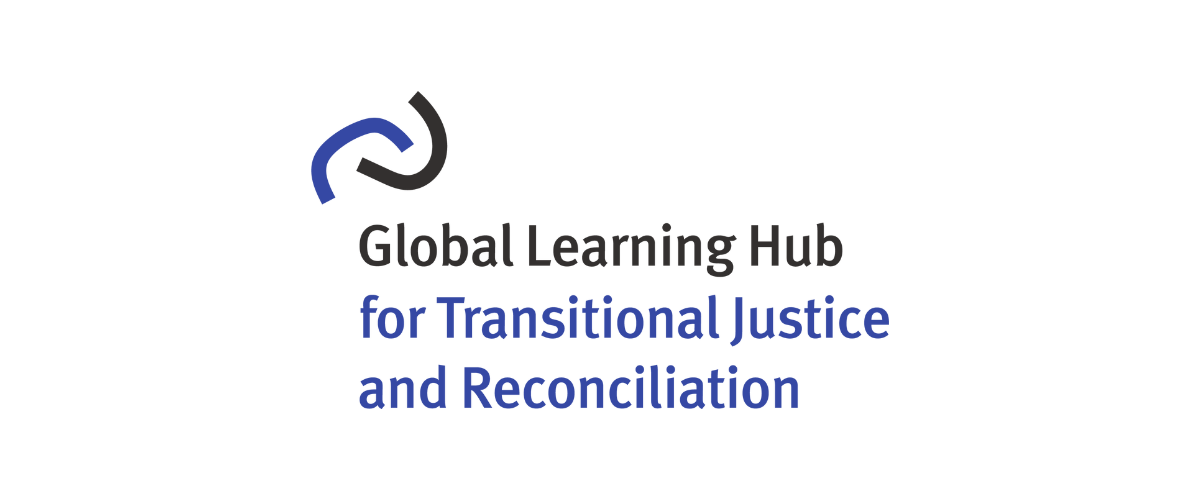CURRENT PROJECT
Global Learning Hub for Transitional Justice and Reconciliation
Advancing policy and practice through collaboration and mutual learning

The Hub strengthens partnerships and advances the policy and practice of transitional justice through mutual learning and knowledge generation, capacity development and advice.
Timeframe: January 2022 - March 2026
After violent conflicts or authoritarian rule, the past remains present. It impacts the everyday lives of victims, survivors and their families as well as societies and politics, even decades later. Different measures to acknowledge and redress gross human rights violations, war crimes and other injustices – frequently referred to as
'transitional justice' – play an important role in paving the way from socio-political violence to peaceful co-existence, social cohesion, democracy and the rule of law. Wherever dealing with the past processes take place, they encounter many challenges, setbacks and compromises – with Germany being no exception in this regard.
The Global Learning Hub for Transitional Justice and Reconciliation is a joint initiative of the Berghof Foundation and the Federal Ministry for Economic Cooperation and Development, in collaboration with partners from Germany and across the world. The Hub seeks to strengthen partnerships and to advance the policy and practice of transitional justice through dialogue and mutual learning, practice-oriented knowledge generation, capacity development and advice.
It does so by collaborating with a variety of actors from the global North and South and by linking German experiences in dealing with the past with current international transitional justice processes and debates.
Find out more on the Hub website:

Background
Background
In July 2019, the German government adopted the “Interministerial Strategy to Support Dealing with the Past and Reconciliation (Transitional Justice)” as part of the implementation of the government's “Guidelines on Preventing Crises, Managing Conflicts, Promoting Peace”.
The strategy aims to strengthen Germany’s engagement in the field of transitional justice, to further approaches and instruments as well as interministerial cooperation. Four priority areas are identified:
- linking dealing with the past with a prevention agenda
- empowering communities particularly affected by violence and transforming conflict narratives
- promoting gender equality in transitional justice processes
- using the multi-faceted experience gained from addressing Germany's past
Furthermore, the strategy highlights the importance of enhanced national and international partnerships between state, civil society and academia, collaboration and mutual learning.
Goals of the Hub
Against this background, the Federal Ministry for Economic Cooperation and Development and the Berghof Foundation took the initiative to establish the Global Learning Hub for Transitional Justice and Reconciliation. The Hub seeks to strengthen partnerships and to advance the policy and practice of transitional justice. Its objectives are to
- facilitate networking and collaboration between relevant stakeholders on the national and international level
- strengthen and enrich mutual learning
- deepen knowledge of and advance approaches to dealing with the past and reconciliation processes
- enhance Germany’s engagement in the field of transitional justice and dealing with the past
Key actors and target audience
The Global Learning Hub for Transitional Justice and Reconciliation is built on a collaborative approach with partners from Germany and across the world, including a broad network of relevant German and international stakeholders. The envisioned shared space for mutual learning, knowledge generation and advice engages a diverse range of actors and target audiences, including:
- German state and civil society actors that are active in transitional justice, remembrance work and civic education
- Civil society organisations and research institutions that are active in the field of transitional justice
- Hubs and platforms working on transitional justice and related issues in (post-)conflict contexts
- Political decision-makers in Germany
Partners and Funding
The Global Learning Hub for Transitional Justice and Reconciliation is a joint initiative of the Berghof Foundation and the Ministry of Economic Cooperation and Development in collaboration with partners from Germany and across the world. It is funded by the Federal Ministry of Economic Cooperation and Development.
Further reading
Key documents:
- Interministerial Strategy to Support Dealing with the Past and Reconciliation (2019)
- The rule of law and transitional justice in conflict and post-conflict societies: Report of the Secretary-General (2004)
- The EU’s Policy Framework on support to transitional justice (2015)
- AU Transitional Justice Policy (2019)
- UN Guidance Note of the Secretary General on Transitional Justice: A Strategic Tool for People, Prevention and Peace (2023)
Selected Berghof publications:
- Bloomfield, David (2006), "On Good Terms: Clarifying Reconciliation (Report No. 14)".
- Fischer, Martina (2011), "Transitional Justice and Reconciliation - Theory and Practice (Handbook Article)".
- Austin, Beatrix & Fischer, Martina (2016), "Transforming War-Related Identities. Individual and Social Approaches to Healing and Dealing with the Past (Handbook Dialogue Series No. 11)".
- Schernbeck, Nico & Vimalarajah, Luxshi (2017), "Negotiating Transitional Justice - A Strategic Framework".
- Zemskov-Zuege, Andrea & Wolleh, Oliver (2018), "Changing the past in our heads - A facilitator's guide to listening workshops".
Updates from this work:
- What makes transitional justice transformative? 29 Jan 2026
- From transition to transformation 13 Nov 2025
- The rise of far-right memory politics 16 Apr 2025
- Video: Event series | National Dialogues at crossroads 11 Mar 2025
- An outside view on Germany's reckoning with its past 6 Nov 2024
- How can the harms caused by climate change be addressed? 28 Mar 2024
- Video: Providing remedies for climate harms 14 Mar 2024
- Navigating transitional justice dilemmas in Nepal 28 Feb 2024
- A struggle against divisive monuments and memories 17 Nov 2023
- New podcast: Voices for Transitional Justice 9 Aug 2023
- Putting people at the centre of transitional justice 9 May 2023
- The gender-transformative potential of transitional justice 9 Feb 2023
- Video: Enabling change 19 Jan 2023
- New video series on transitional justice 1 Nov 2022
- The future of transitional justice 21 Jul 2022
- Video: Transitioning to the future 5 Jul 2022
- New cooperation agreement to establish Transitional Justice Hub 12 Aug 2021
Publications from this project:
- Rewriting history, undermining democracy. The role of the New Right in South Korean memory politics
Hannes B. Mosler. 2025
- Between nostalgia and apocalypse. White nationalist remembrance of the past and fear of the future in post-apartheid South Africa
Malose Langa, Peace Kiguwa. 2025
- Glorification, whitewashing, erasure. The populist challenge to dealing with the past in Lithuania
Violeta Davoliūtė. 2025
- Endangered cultural memory. The impact of far-right discourses and practices on human rights related to the dictatorship in Chile
Carolina Aguilera, Manuela Badilla. 2025
- The rise of far-right memory politics. A global perspective
2025
Project lead
Natascha Zupan
Head of the Global Learning Hub for Transitional Justice and Reconciliation
email hidden; JavaScript is required
Team members
Matthias Auer
Beatrix Austin
Johanna Lober
Barbara Unger
Media contact
You can reach the press team at:
+49 (0) 177 7052758
email hidden; JavaScript is required


